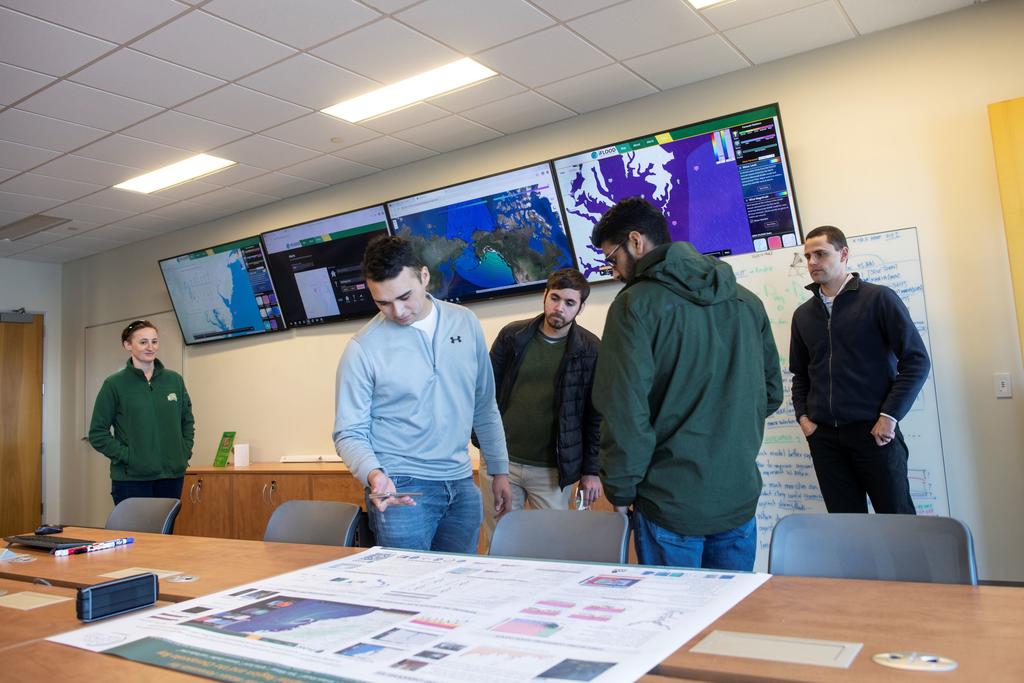Our graduate degrees in civil and infrastructure engineering train you to use the latest technologies, including virtual reality, artificial intelligence, robotics, remote sensing, and building information modeling.
MS in Civil and Infrastructure Engineering
The Master of Science in Civil and Infrastructure Engineering educates students in the theory and practice of civil engineering science and design. It serves as a foundation for subsequent study in a doctoral program in civil engineering, as well as for graduate studies in architecture, law, business, economics, finance, and public policy and administration.
Five Concentrations:
- Construction Engineering and Management
- Environmental and Water Resources Engineering
- Geotechnical Engineering
- Structural Engineering
- Transportation Engineering

Discover how our PhD program can position you to lead advancements in sustainable infrastructure, environmental solutions, and engineering innovations through groundbreaking research.
PhD in Civil and Infrastructure Engineering
The Doctor of Philosophy in Civil and Infrastructure Engineering equips students for advanced leadership positions in research and development in the public or private sector, academics, or government.
Interest Areas:
- Construction Engineering and Management
- Environmental and Water Resources Engineering
- Geotechnical Engineering
- Structural Engineering
- Transportation Engineering
